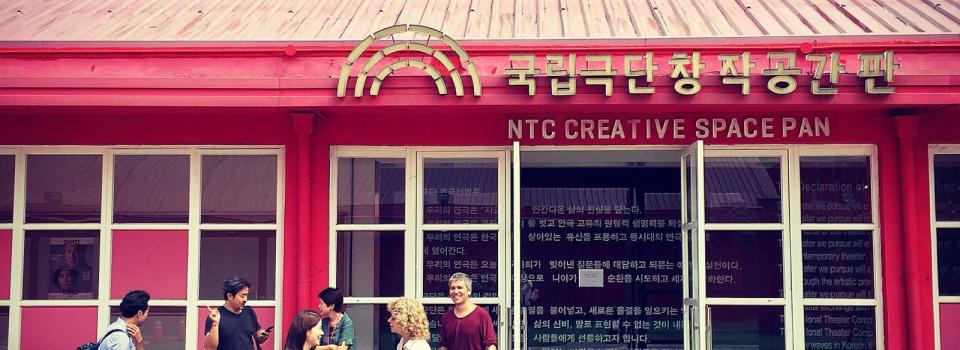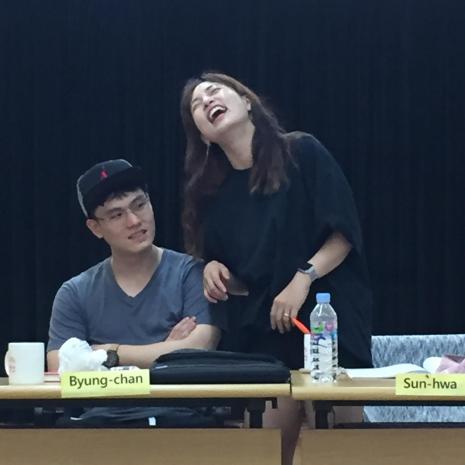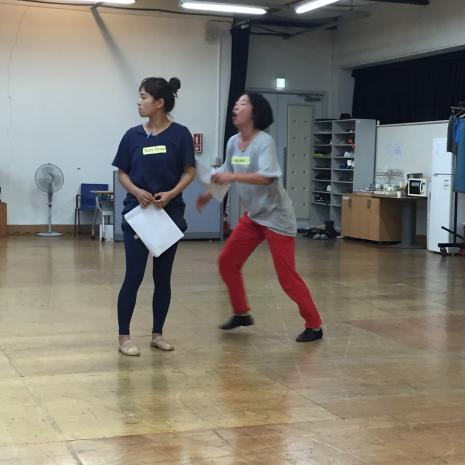
Roberto Zucco # 1
The National Theater Company of Korea (NTCK) invited us to work on a production of Roberto Zucco, by Bernard-Marie Koltès, with their theatre company. When I say we, I mean Jean Lambert-wild and Lorenzo Malaguerra, theatre associates who have been working together on a few different shows (The Wisdom of Bees, Waiting for Godot, Richard III – Loyaulté me Lie). Although we have been working in Seoul for a week, we have in fact been thinking about the show for over a year, in France and in Switzerland.

When asked whether it is difficult to make theatre in a language other than one’s own, we give an answer that is twofold. It is not difficult, for instance, to give directions to the actors about their performance – our translator does it for us – and it isn’t difficult either to see whether or not their intentions feel right, in relation to the situations their characters are in. However, as language is both an expression of a way of thinking, and of a culture, the Korean language turns out to be very different from the French. This is why we have spent the entirety of our first week in Korea checking with the actors that the Korean translation of Koltès’ text accurately reflects the spirit of the French version. Several interesting examples show how difficult this task can be. For instance, the Girl character complains that her parents and her sister call her several different bird names to show their affection: rossignol (nightingale), alouette (lark), colombe (dove), etc. It is a recurring motif throughout the play. However, in Korean, bird names are never used in such a way to show affection towards one’s children. We have had to find an equivalent terminology, outside of the animal realm, and decline it throughout the play. Another example: in his writing, Koltès juxtaposes very literary sentences with some that are a lot more banal. This is one of the characteristics of his writing, which sometimes reflects reality and sometimes goes beyond it. The Korean translation had a tendency to highlight the literary aspects of the work, but it attenuated the occasionally crude language used by the characters. Erasing that aspect of the text also meant that the sense of humour, very present in the French version, disappeared. Our Korean colleagues thus worked hard to translate expressions such as “se foutre de la gueule de…” (“to take the piss of someone”), or “grosse connasse” (“stupid cow”). They had to find the subtle difference between “bite” (cock) and “queue” (dick) and to imagine all the gradations between “demoiselle” (girl), “dame” (lady), “prostituée” (prostitute) and “pute” (whore). This gave us an opportunity to laugh and to demonstrate how lexically resourceful most languages are.

The week we spent working on the text allowed us to note how cohesive the company members were and the quality of the actors’ skill. Soon, we will be able to show the world this. For now, we are getting ready to start working in the room, on stage, and to try out the scenography we planned for our version of Roberto Zucco.


